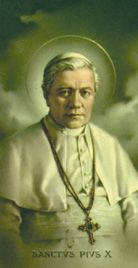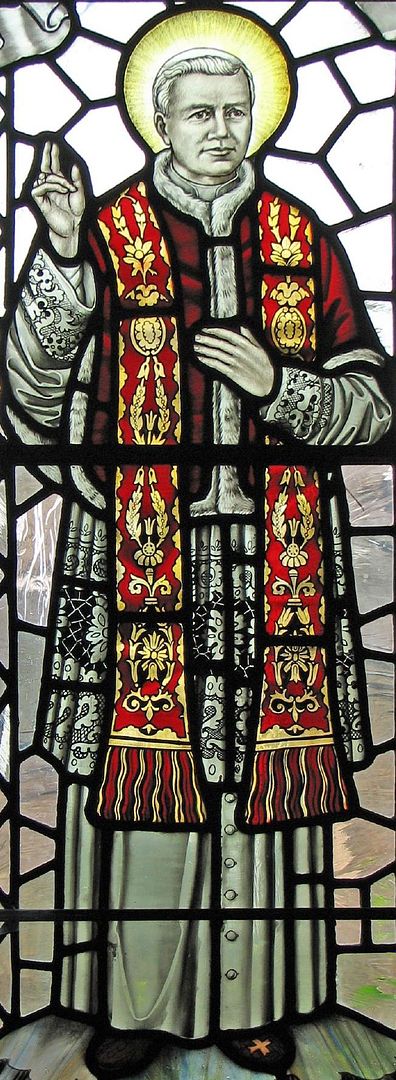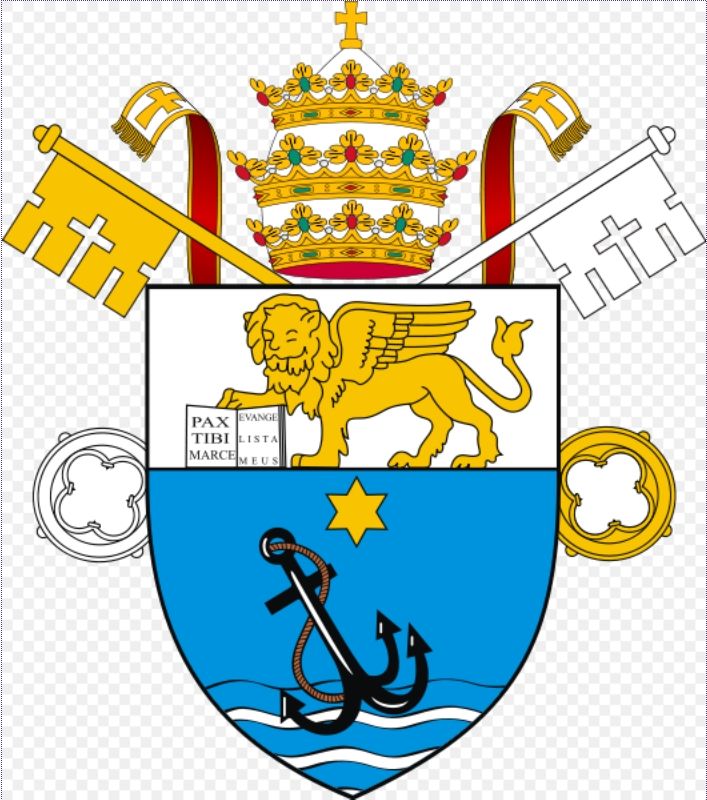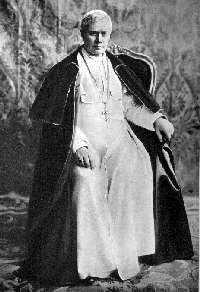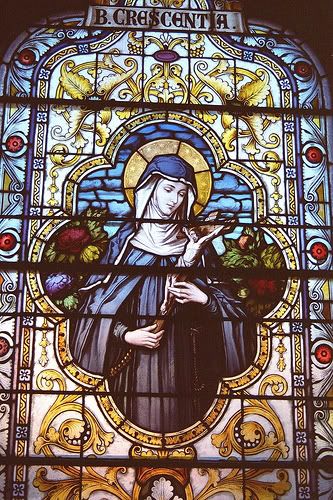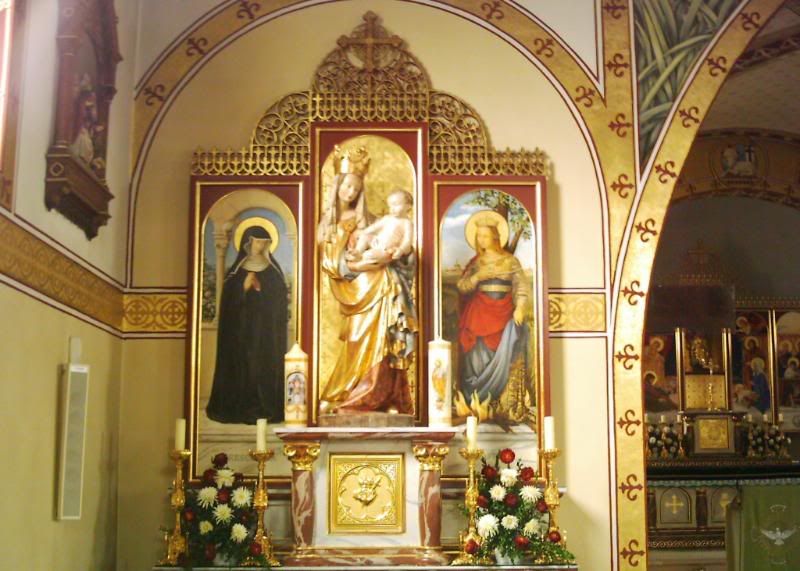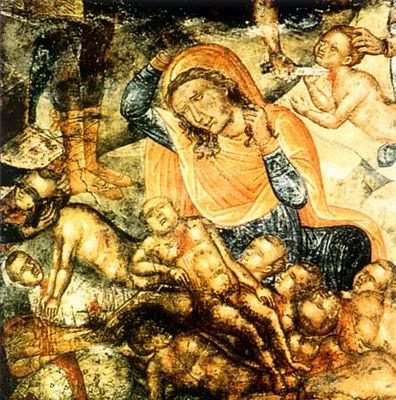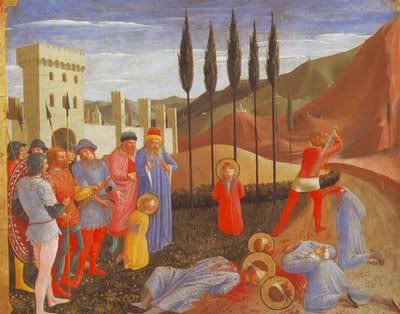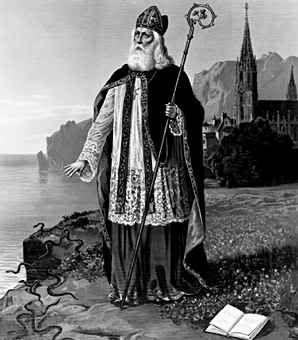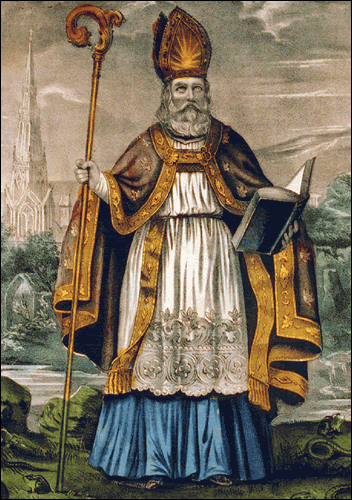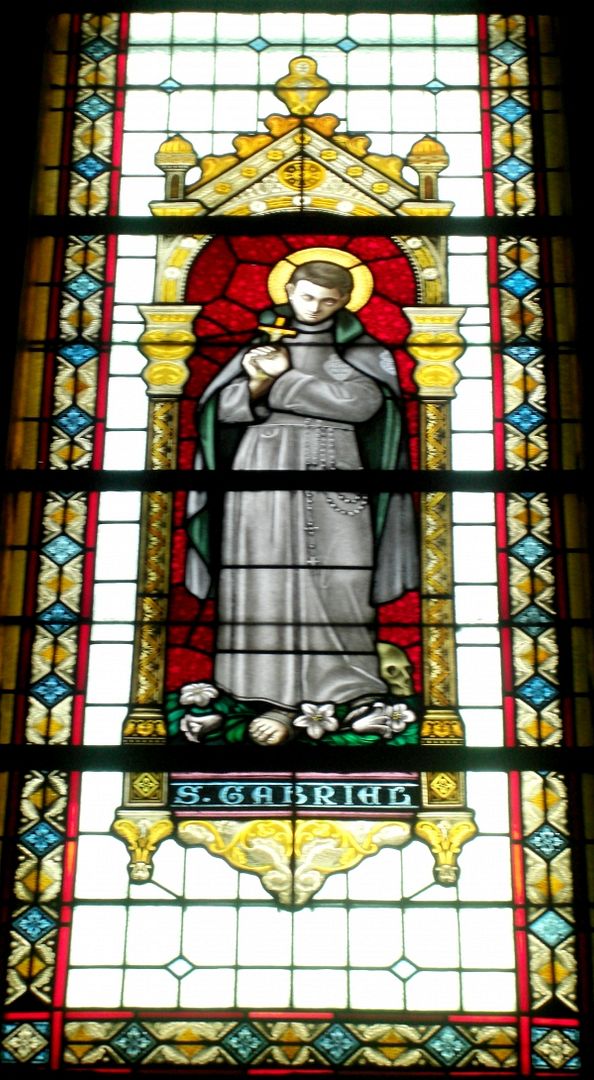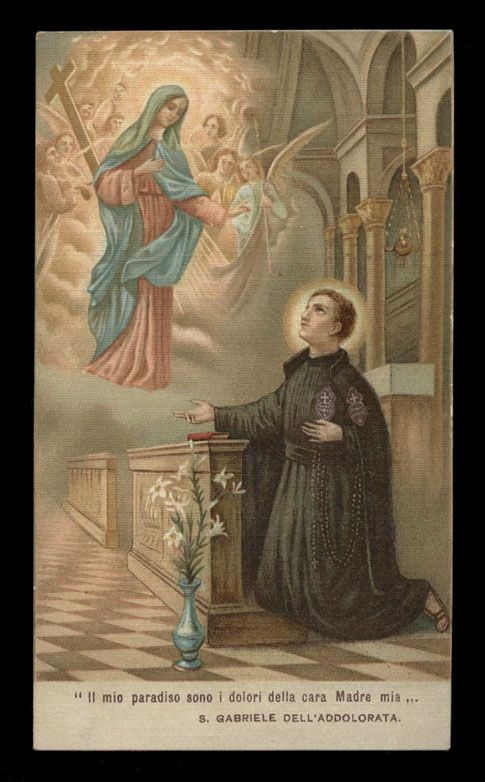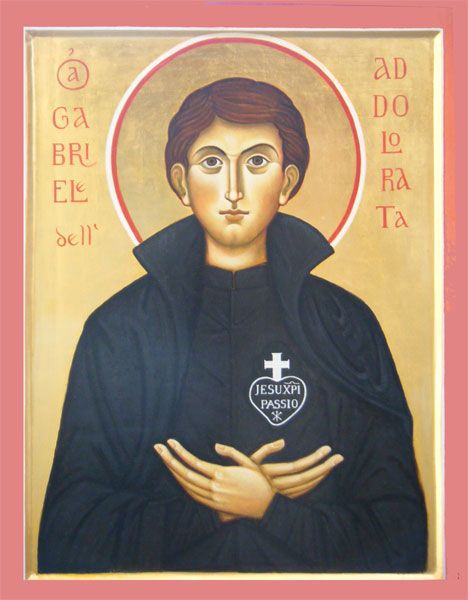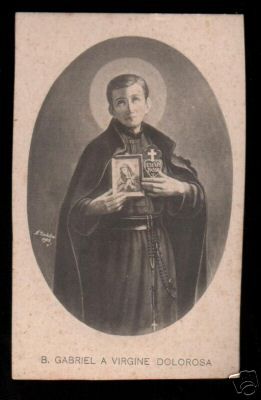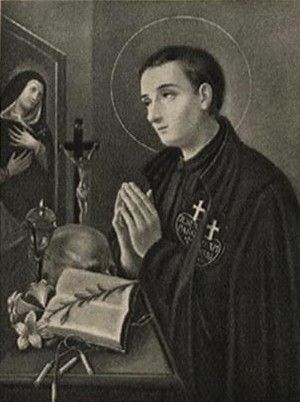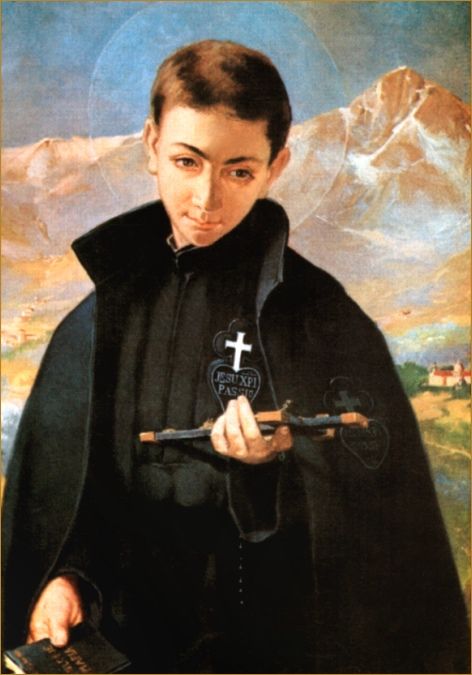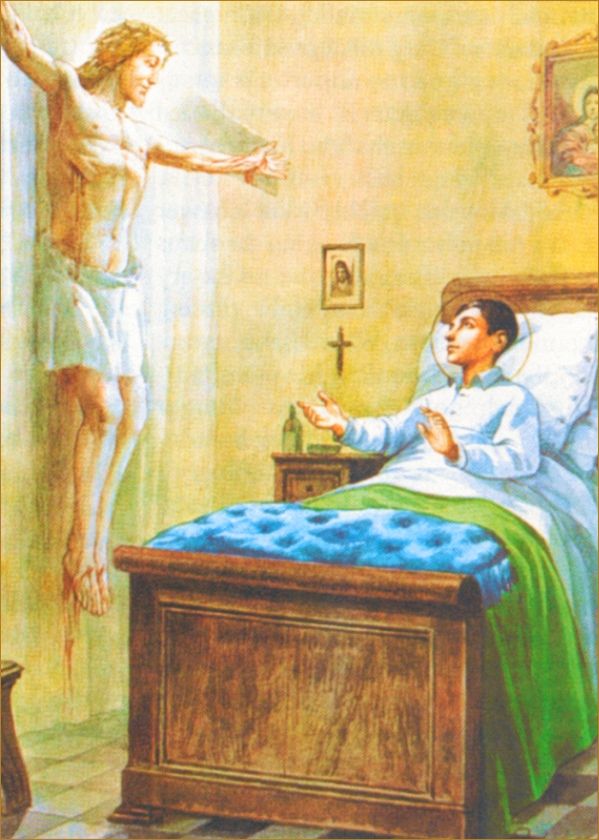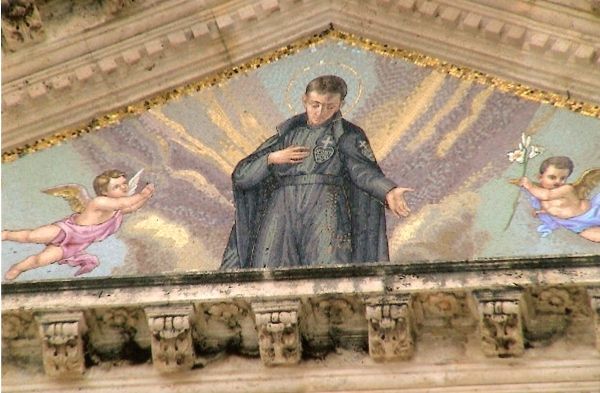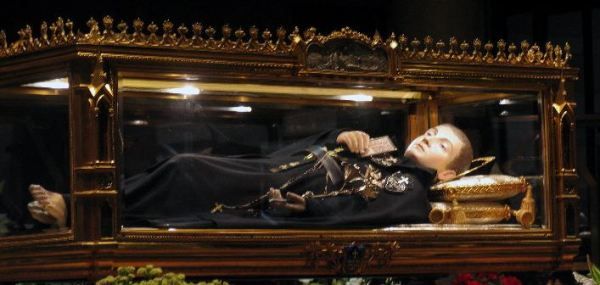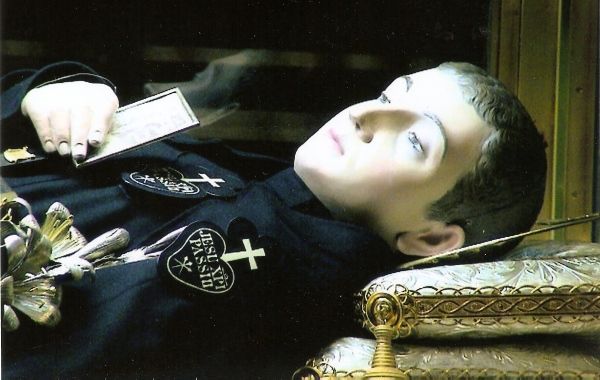"Go and find him when your patience and strength run out and you feel alone and helpless. Jesus is waiting for you in the chapel. Say to him, ‘Jesus, you know exactly what is going on. You are all I have, and you know all things. Come to my help.’ And then go, and don’t worry about how you are going to manage. That you have told God about it is enough. He has a good memory."
Today, August 30, we celebrate the feast day of Saint Jeanne Jugan (1792-1842), known as Sister Mary of the Cross, and foundress of the Little Sisters of the Poor. Saint Jeanne devoted herself to caring for the less fortunate, specifically the elderly and forgotten. While she experienced significant disappointments and difficulties in her life, Saint Jeanne modeled humility and joy in service, not in worldly recognition or acclaim. In his homily at her beatification, Pope John Paul II praised "the quiet but eloquent radiance of her life." He stated, "In our day, pride, the pursuit of efficacy, the temptation to use power all run rampant in the world, and sometimes, unfortunately, even in the Church. They become an obstacle to the coming of the Kingdom of God. This is why the spirituality of Jeanne Jugan can attract the followers of Christ and fill their hearts with simplicity and humility, with hope and evangelical joy, having their source in God and in self-forgetfulness."
Jeanne was born in Cancale (Ille-et-Vilaine), France, in the village of Petites Croix. She was baptized on the same day. Her father, a fisherman, died when she was just four years old, lost at sea, and her mother was forced to raise Jeanne and her three siblings alone. Jeanne, her brother and two sisters learned from their mother how to live in poverty, honestly and courageously with faith and love in God. Given the family’s financial state, Jeanne went to work at the age of 16 as a kitchen maid in a manor outside the village.
Jeanne worked at the manner from 16 until the age of 25, and then left home, moving to Saint Servan. There, she was employed in a hospital, where she worked as a nurse’s aide. In her work, she encountered many who were in desperate need, and Jeanne felt the call to assist them. She spurned the advances of suitors, preferring to devote herself to the suffering around her. When a young sailor asked her to marry him, she replied, "God wants me for himself. He is keeping me for a work which is not yet founded."
At 25, Jeanne joined the Third Order of the Admirable mother, an association influenced by the teachings of Saint John Eudes. In her contemplation and prayer, Jeanne sought only to serve the Lord, becoming more like Jesus through imitation and intercession of Mary, Our Blessed Mother. She sought out the most destitute, weak, and sick, giving what little she had to their care.
When Jeanne was 47, her life was to be influenced in a profound manner by an unexpected visitor to her home. On a bitterly cold winter’s evening, she opened her door to a blind and semi-paralyzed elderly woman who had been left alone. Jeanne opened her heart to his poor woman, giving up her own bed. Soon, word spread, and a second elderly woman followed, and then more after her. By 1943, over forty were being cared for by Jeanne and her three young companions. Jeanne acted as superior of the developing religious order, offering guidance and structure to those who wished to assist her in her work.
Mother Marie of the Cross, as Jeanne was now known, founded six more houses for the elderly by the end of 1849, all staffed by members of her association—the Little Sisters of the Poor. By 1853 the association numbered 500 and had houses as far away as England. However, difficult times lay in store for Jeanne. Politics outside the order led to Jeanne being “demoted” from superior to a simple alms collector. This hard task had been one she began herself, early in her life, encouraged in charity by the Brothers of Saint John of God. Despite her advancing age and the years of work she had taken to build the order, Jeanne suffered this insult and injustice in silence. She remained gentle and kind, caring and compassionate, never complaining. Instead, she relied on her faith and love of the Lord, building up the other members of her order in any way she could.
As the years passed by, Mother Marie was more and more shrouded in obscurity. Those who had seen to her demotion also insured that her contribution to the founding of the order was also erased. She was kept in the background for twenty-seven years (1852 to 1879), four at the Home in Rennes, and the last twenty-three years of her long life at La Tour Saint Joseph, the Motherhouse of the Congregation of the Little Sisters of the Poor since 1856.
Saint Jeanne died at the age of 86. Her last words were, "O Mary, my dear Mother, come to me. You know I love you and how I long to see You!" Few of her sisters knew that she was the foundress of the Order, but all recognized her gentle spirit and great influence on the charity and work of all she came in contact with. It was not until 23 years after her death that she was revealed as the founders of the Little Sisters of the Poor. Her tomb, in the crypt of the chapel of the Motherhouse, in La Tour St. Joseph (Saint Pern), attracts many pilgrims, as do her birthplace in the hamlet of Les Petites Croix, in Cancale, and the foundation’s house in Saint Servan where she labored for many years.
On July 13, 1979, the Church officially acknowledged the heroic nature of Jeanne Jugan’s virtues. Her example continues to inspire the Little Sisters of the Poor today as they continue her work of humble service to the poor.
Selected Quotations of Saint Jeanne Jugan:
“Refuse God nothing … We must do all through love.”
“Do not call me Jeanne Jugan. All that is left of her is Sister Mary of the Cross, unworthy though she is of that lovely name.”
“What happiness for us, to be a Little Sister of the Poor!”
“When you grow old, you will no longer see anything…. As for me, I no longer see anything but God!”
“Give, give us the house. If God fills it, he will not abandon it.”
“God has blessed me because I have always greatly thanked his Providence.”
“It is a great grace that God has given you in calling you to serve the poor.”
“If God is with us, it will be accomplished.”
“Little, very little, be very little before God… hidden by humility in all God wants from you, as being only the instruments of his work.”
“Let us sing the glory of our risen Jesus.”
“My good Jesus, I have only you.”
“Remain little, hidden by humility in all God wants from you, as being only the instruments of his work.”
“We must know how to efface ourselves by humility in all that God asks of us.”
“When you will be near the poor, give yourself wholeheartedly.”
“Making the elderly happy – that is what counts!”
“In our troubles, we must always say, "Blessed be God, thank you my God, or glory to God!"
“If you keep the spirit of humility and simplicity, never seeking the world’s esteem, then God will be glorified and you will obtain the conversion of souls.”
“It is so good to be poor, to have nothing, to depend on God for everything.”
“We were grafted into the Cross.”
“Refuse God nothing. Accustom yourselves to do everything for him ... Let us love him very much, that is all that is necessary.”
“God will help us; the work is his.”
“He is so good ... love God very much. All for him, do everything through love.”
“Love God very much, so that you can look after the aged well, for it is Jesus whom you care for in them.”
“My little ones, never forget that the poor are Our Lord; in caring for the poor say to yourself: This is for my Jesus – what a great grace!”
“Be kind, especially with the infirm. Love them well ... Oh yes! Be kind. It is a great grace God is giving you. In serving the aged, it is he himself whom you are serving.”
“The Hail Mary will take us to heaven.”
Jesus, you rejoiced and praised Your Father for having revealed to little ones the mysteries of the Kingdom of Heaven. We thank You for the graces granted to Your humble servant, Jeanne Jugan, to whom we confide our petitions and needs.
Father of the Poor, You have never refused the prayer of the lowly. We ask You, therefore, to hear the petitions she presents to You on our behalf.
Jesus, through Mary, Your Mother and ours, we ask this of You, who live and reign with the Father and the Holy Spirit now and forever.
Amen.
Year 2: Day 242 of 365
Prayer Intentions: Humble service to all in need.
Requested Intentions: Mother’s health (A); Financial security, freedom from anxiety (S); For a son and cousins (L); Peace and civility (B); Successful examination results (D); Safety of family, strength, courage, wisdom (C); For the souls of a departed father and brother, finding of a suitable marriage partner (R); Successful pilgrimage, deepening of prayer life (R); Restoration of health (J); Restoration of health (S); Freedom from pride (A); For children and marriage (M); For the birth of a healthy baby (Y); For personal family intentions, for the sick, poor, hungry, and homeless (G); Financial security and peace (J); Grace, peace, and obedience to the will of God in a marriage (H); Successful and blessed marriage for sin, freedom from anxiety for husband, spiritual contentedness for family (N); Employment and health for a husband (B); Recovery and health of a mother (J); For a family to grow closer to the Church, salvation for all children (D); Successful employment (L); Successful employment (S); Renewal of faith life (A); Support for an intended marriage, health for friend and aunt (J); Mental health assistance for son (G); Freedom from illness (S); Successful employment (C); Financial assistance and employment (B); For a family’s intentions (T); Successful examination results (B); Healing of a friend with cancer, for all those who help others (B); Healing and love (L); Grace and healing (V); Healing of a heart, consecration of a marriage (M); Health of a family, intentions of apostolate (H); For repentance (J); For a family in trouble (R).
Why pray the Rosary every day for a year?
Each time the Blessed Virgin has appeared-- whether it be to Saint Bernadette Soubirous at Lourdes; to Lucia, Jacinta, and Francisco at Fatima; or to Mariette Beco at Banneux-- she has asserted the importance, saving grace, and power of praying the Holy Rosary on a daily basis. Based upon her words, the Rosary is penance and conversion for sinners, a pathway to peace, an end to war, and a powerful act of faith in Jesus Christ. Pope Paul VI presented the Rosary as a powerful means to reach Christ "not merely with Mary but indeed, insofar as this is possible to us, in the same way as Mary, who is certainly the one who thought about Him more than anyone else has ever done."
To show us how this is done, perhaps no one has been more eloquent than the great Cardinal Newman, who wrote: "The great power of the Rosary consists in the fact that it translates the Creed into Prayer. Of course, the Creed is already in a certain sense a prayer and a great act of homage towards God, but the Rosary brings us to meditate again on the great truth of His life and death, and brings this truth close to our hearts. Even Christians, although they know God, usually fear rather than love Him. The strength of the Rosary lies in the particular manner in which it considers these mysteries, since all our thinking about Christ is intertwined with the thought of His Mother, in the relations between Mother and Son; the Holy Family is presented to us, the home in which God lived His infinite love."
As Mary said at Fatima, "Jesus wants to use you to make Me known and loved. He wishes to establish the devotion to My Immaculate Heart throughout the world. I promise salvation to whoever embraces it; these souls will be dear to God, like flowers put by Me to adorn his throne."

“Holy Communion is the shortest and safest way to Heaven.”
Today, August 21, we celebrate the feast day of Pope Saint Pius X (1835-1914), Confessor, reformer, and the two hundred-fifty-ninth pope. Referred to as the “Pope of the Blessed Sacrament,” Pope Pius X is perhaps remembered best for his encouragement of frequent reception of the Holy Eucharist, especially for children. He urged all Catholics to look to Our Blessed Mother, and to “Restore all things in Christ” for the betterment of personal lives and of the world—a world plunged into war during his papacy. Throughout his life, Pope Pius X never forgot his humble beginnings, and lived a life of poverty, service, and humility. His last will and testament proclaims this sentiment: "I was born poor, I have lived in poverty, and I wish to die poor."
A contemporary of this great holy man, Baron von Pastor, stated of him: "He was one of those chosen few men whose personality is irresistible. Everyone was moved by his simplicity and his angelic kindness. Yet it was something more that carried him into all hearts: and that 'something' is best defined by saying that all who were ever admitted to his presence had a deep conviction of being face to face with a saint.”
Born Giuseppe Melchiorre Sarto in the small village of Reise, Venetia, the future pope experienced poverty and demonstrated humility from an early age. Giuseppe’s father was the town postman and with his mother, the couple struggled to financially support ten children. Despite their poverty, both parents highly valued education, and rather than working, Giuseppe walked six kilometers to school each day to receive his education.
As a child, Giuseppe demonstrated aptitude for learning and devotion to the Lord. He studied Latin with a local priest, and through his hard work, secured himself a scholarship to attend Seminary in Padua—something his family could not have afforded. Ordained at the age of twenty-three, he served as curate, and then labored for 17 years as a parish priest. As a priest, Giuseppe sought to prefect his knowledge of theology by assiduously studying Saint Thomas and canon law. At the same time he established a night school for adult students, and devoted himself of the ministry of preaching in other towns to which he was called. Giuseppe was elected bishop of Mantua, and in 1892 was advanced to Cardinal, and appointed to the metropolitan see of Venice with the honorary title of Patriarch. Noted for his keen intelligence, diligent work, and great piety, he was sought out for prestigious positions and advanced rapidly. Through all of his work, Giuseppe obediently answered the call of the Lord, never seeking election or promotion, but accepting that which was thrust upon him.
Giuseppe was elected Pope in 1903, taking the name Pius X, described as "a man of God who knew the unhappiness of the world and the hardships of life, and in the greatness of his heart wanted to comfort everybody." The primary goal and aim of his papacy was to “Renew all things in Christ” ("instaurare omnia in Christo"). He preached frequent reception of Holy Eucharist, a restoration of church music—including Gregorian Chant, encouraged daily Bible reading and renewal and reform of institutions to teach Biblical matters, reorganized the Roman ecclesiastical offices, and codified Canon Law—all in attempts to draw the faithful to Christ and renew the Church in His presence.
As Pope and spiritual director of the Church on earth, he displayed untiring self-sacrifice and great energy. Above all things, he defended the purity of Christian doctrine. He realized to the full the value of the liturgy as the prayer of the Church and the solid basis that it furnishes for the devotion of Christian people. He promoted sacred music so that the congregation may better participate in holy prayer, and had choir books printed for the congregation. Above all, his holiness shone forth conspicuously. From Pius X we learn again that "the folly of the Cross", simplicity of life, and humility of heart are still the highest wisdom and the indispensable conditions of a perfect Christian life, for they are the very source of all apostolic fruitfulness.
On the eleventh anniversary of his election as pope, Europe was thrust into the first World War. Taking ill with bronchitis, he wrote, “This is the last affliction the Lord will visit on me. I would gladly give my life to save my poor children from this ghastly scourge.” Pope Saint Pius X died a few days later, on August 20, 1914. His sanctity and power to work miracles had already been recognized. He was the first Pope canonized since Saint Pius V in 1672.
Selected Quotations of Pope Saint Pius X:
“Truly we are passing through disastrous times, when we may well make our own the lamentation of the Prophet: “There is no truth, and there is no mercy, and there is no knowledge of God in the land” (Hosea 4:1). Yet in the midst of this tide of evil, the Virgin Most Merciful rises before our eyes like a rainbow, as the arbiter of peace between God and man.”
“God could have given us the Redeemer of the human race, and the Founder of the Faiths in another way than through the Virgin, but since Divine Providence has been pleased that we should have the Man-God through Mary, who conceived Him by the Holy Spirit and bore Him in her womb, it only remains for us to receive Christ from the hands of Mary.”
“Sanctity alone makes us what our divine vocation demands, men crucified to the world and to whom the world has been crucified, men walking in newness of life who, in the words of St. Paul, show themselves as ministers of God in labors, in vigils, in fasting, in chastity, in knowledge, in long-suffering, in kindness, in the Holy Spirit, in sincere charity, in the word of truth; men who seek only heavenly things and strive by every means to lead others to them.”
“My hope is in Christ, who strengthens the weakest by His Divine help. I can do all in Him who strengthens me. His Power is infinite, and if I lean on him, it will be mine. His Wisdom is infinite, and if I look to Him for counsel, I shall not be deceived. His Goodness is infinite, and if my trust is stayed in Him, I shall not be abandoned.”
“Let the storm rage and the sky darken – not for that shall we be dismayed. If we trust as we should in Mary, we shall recognize in her, the Virgin Most Powerful “who with virginal foot did crush the head of the serpent.”
“The collection of psalms found in Scripture, composed as it was under divine inspiration, has, from the very beginnings of the Church, shown a wonderful power of fostering devotion among Christians as they offer “to God a continuous sacrifice of praise, the harvest of lips blessing his name.” Following a custom already established in the Old Law, the psalms have played a conspicuous part in the sacred liturgy itself, and in the divine office. Augustine expresses this well when he says: “God praised himself so that man might give him fitting praise; because God chose to praise himself man found the way in which to bless God.” The psalms have also a wonderful power to awaken in our hearts the desire for every virtue. Athanasius says: “The psalms seem to me to be like a mirror, in which the person using them can see himself, and the stirrings of his own heart; he can recite them against the background of his own emotions.” Augustine says in his Confessions: “How I wept when I heard you hymns and canticles, being deeply moved by the sweet singing of your Church. Those voices flowed into my ears, truth filtered into my heart, and from my heart surged waves of devotion.” Indeed, who could fail to be moved by those many passages in the psalms which set forth so profoundly the infinite majesty of God, his omnipotence, his justice and goodness and clemency, too deep for words, and all the other infinite qualities of his that deserve our praise? Who could fail to be roused to the same emotions by the prayers of thanksgiving to God for blessings received by the petitions, so humble and confident, for blessings still awaited, by the cries of a soul in sorrow for sin committed? Who would not be fired with love as he looks on the likeness of Christ, the redeemer, here so lovingly foretold? His was “the voice” Augustine heard in every psalm, the voice of praise, of suffering, of joyful expectation, of present distress.”
From AD DIEM ILLUM LAETISSIMUM (On the Immaculate Conception), Papal Encyclical:
10. For is not Mary the Mother of Christ? Then she is our Mother also. And we must in truth hold that Christ, the Word made Flesh, is also the Savior of mankind. He had a physical body like that of any other man: and again as Savior of the human family, he had a spiritual and mystical body, the society, namely, of those who believe in Christ. "We are many, but one sole body in Christ" (Rom. xii., 5). Now the Blessed Virgin did not conceive the Eternal Son of God merely in order that He might be made man taking His human nature from her, but also in order that by means of the nature assumed from her He might be the Redeemer of men. For which reason the Angel said to the Shepherds: "To-day there is born to you a Savior who is Christ the Lord" (Luke ii., 11). Wherefore in the same holy bosom of his most chaste Mother Christ took to Himself flesh, and united to Himself the spiritual body formed by those who were to believe in Him. Hence Mary, carrying the Savior within her, may be said to have also carried all those whose life was contained in the life of the Savior. Therefore all we who are united to Christ, and as the Apostle says are members of His body, of His flesh, and of His bones (Ephes. v., 30), have issued from the womb of Mary like a body united to its head. Hence, though in a spiritual and mystical fashion, we are all children of Mary, and she is Mother of us all. Mother, spiritually indeed, but truly Mother of the members of Christ, who are we (S. Aug. L. de S. Virginitate, c. 6).
11. If then the most Blessed Virgin is the Mother at once of God and men, who can doubt that she will work with all diligence to procure that Christ, Head of the Body of the Church (Coloss. i., 18), may transfuse His gifts into us, His members, and above all that of knowing Him and living through Him (I John iv., 9)?
12. Moreover it was not only the prerogative of the Most Holy Mother to have furnished the material of His flesh to the Only Son of God, Who was to be born with human members (S. Bede Ven. L. Iv. in Luc. xl.), of which material should be prepared the Victim for the salvation of men; but hers was also the office of tending and nourishing that Victim, and at the appointed time presenting Him for the sacrifice. Hence that uninterrupted community of life and labors of the Son and the Mother, so that of both might have been uttered the words of the Psalmist “My life is consumed in sorrow and my years in groans" (Ps xxx., 11). When the supreme hour of the Son came, beside the Cross of Jesus there stood Mary His Mother, not merely occupied in contemplating the cruel spectacle, but rejoicing that her Only Son was offered for the salvation of mankind, and so entirely participating in His Passion, that if it had been possible she would have gladly borne all the torments that her Son bore (S. Bonav. 1. Sent d. 48, ad Litt. dub. 4). And from this community of will and suffering between Christ and Mary she merited to become most worthily the Reparatrix of the lost world (Eadmeri Mon. De Excellentia Virg. Mariae, c. 9) and Dispensatrix of all the gifts that Our Savior purchased for us by His Death and by His Blood.
13. It cannot, of course, be denied that the dispensation of these treasures is the particular and peculiar right of Jesus Christ, for they are the exclusive fruit of His Death, who by His nature is the mediator between God and man. Nevertheless, by this companionship in sorrow and suffering already mentioned between the Mother and the Son, it has been allowed to the august Virgin to be the most powerful mediatrix and advocate of the whole world with her Divine Son (Pius IX. Ineffabilis). The source, then, is Jesus Christ "of whose fullness we have all received" (John i., 16), "from whom the whole body, being compacted and fitly joined together by what every joint supplieth, according to the operation in the measure of every part, maketh increase of the body unto the edifying of itself in charity" (Ephesians iv., 16). But Mary, as St. Bernard justly remarks, is the channel (Serm. de temp on the Nativ. B. V. De Aquaeductu n. 4); or, if you will, the connecting portion the function of which is to join the body to the head and to transmit to the body the influences and volitions of the head - We mean the neck. Yes, says St. Bernardine of Sienna, "she is the neck of Our Head, by which He communicates to His mystical body all spiritual gifts" (Quadrag. de Evangel. aetern. Serm. x., a. 3, c. iii.).
14. We are then, it will be seen, very far from attributing to the Mother of God a productive power of grace - a power which belongs to God alone. Yet, since Mary carries it over all in holiness and union with Jesus Christ, and has been associated by Jesus Christ in the work of redemption, she merits for us de congruo, in the language of theologians, what Jesus Christ merits for us de condigno, and she is the supreme Minister of the distribution of graces. Jesus "sitteth on the right hand of the majesty on high" (Hebrews i. b.). Mary sitteth at the right hand of her Son - a refuge so secure and a help so trusty against all dangers that we have nothing to fear or to despair of under her guidance, her patronage, her protection. (Pius IX. in Bull Ineffabilis).
Glorious Pope of the Eucharist, Saint Pius X, you sought "to restore all things in Christ." Obtain for me a true love of Jesus so that I may live only for Him. Help me to acquire a lively fervor and a sincere will to strive for sanctity of life, and that I may avail myself of the riches of the Holy Eucharist in sacrifice and sacrament. By your love for Mary, mother and queen of all, inflame my heart with tender devotion to her.
Blessed model of the priesthood, obtain for us holy, dedicated priests, and increase vocations to the religious life. Dispel confusion and hatred and anxiety, and incline our hearts to peace and concord. so that all nations will place themselves under the sweet reign of Christ. Amen.
Saint Pius X, pray for me.
Father,
to defend the Catholic faith
and to make all things new in Christ,
You filled St. Pius X
with heavenly wisdom and apostolic courage.
May his example and teaching
lead us to the reward of eternal life.
Grant this through our Lord Jesus Christ, Your Son,
who lives and reigns with You and the Holy Spirit,
one God, for ever and ever. Amen.
Year 2: Day 232 of 365
Prayer Intentions: Yearning for the Lord.
Requested Intentions: Restoration of health (J); Restoration of health (S); Freedom from pride (A); For children and marriage (M); For the birth of a healthy baby (Y); For personal family intentions, for the sick, poor, hungry, and homeless (G); Financial security and peace (J); Grace, peace, and obedience to the will of God in a marriage (H); Successful and blessed marriage for sin, freedom from anxiety for husband, spiritual contentedness for family (N); Employment and health for a husband (B); Recovery and health of a mother (J); For a family to grow closer to the Church, salvation for all children (D); Successful employment (L); Successful employment (S); Renewal of faith life (A); Support for an intended marriage, health for friend and aunt (J); Mental health assistance for son (G); Freedom from illness (S); Successful employment (C); Financial assistance and employment (B); For a family’s intentions (T); Successful examination results (B); Healing of a friend with cancer, for all those who help others (B); Healing and love (L); Grace and healing (V); Healing of a heart, consecration of a marriage (M); Health of a family, intentions of apostolate (H); For repentance (J); For a family in trouble (R); Healing, successful relationships for son, financial success (J); Success of a company (L); For a religious society (J); Healing of a husband, strength as a faithful caregiver (D); Healing of a son (T); Financial security, Healing and guidance (M); Healing of a heart and relationship (V); Employment for daughter (J); For a marriage that glorifies the Lord (K); Resolution of family situation, parents’ health (A); Positive results (C); For a son’s employment, faith, and relationships (S).
Today, August 21, we celebrate the feast day of Pope Saint Pius X (1835-1914), Confessor, reformer, and the two hundred-fifty-ninth pope. Referred to as the “Pope of the Blessed Sacrament,” Pope Pius X is perhaps remembered best for his encouragement of frequent reception of the Holy Eucharist, especially for children. He urged all Catholics to look to Our Blessed Mother, and to “Restore all things in Christ” for the betterment of personal lives and of the world—a world plunged into war during his papacy. Throughout his life, Pope Pius X never forgot his humble beginnings, and lived a life of poverty, service, and humility. His last will and testament proclaims this sentiment: "I was born poor, I have lived in poverty, and I wish to die poor."
A contemporary of this great holy man, Baron von Pastor, stated of him: "He was one of those chosen few men whose personality is irresistible. Everyone was moved by his simplicity and his angelic kindness. Yet it was something more that carried him into all hearts: and that 'something' is best defined by saying that all who were ever admitted to his presence had a deep conviction of being face to face with a saint.”
Born Giuseppe Melchiorre Sarto in the small village of Reise, Venetia, the future pope experienced poverty and demonstrated humility from an early age. Giuseppe’s father was the town postman and with his mother, the couple struggled to financially support ten children. Despite their poverty, both parents highly valued education, and rather than working, Giuseppe walked six kilometers to school each day to receive his education.
As a child, Giuseppe demonstrated aptitude for learning and devotion to the Lord. He studied Latin with a local priest, and through his hard work, secured himself a scholarship to attend Seminary in Padua—something his family could not have afforded. Ordained at the age of twenty-three, he served as curate, and then labored for 17 years as a parish priest. As a priest, Giuseppe sought to prefect his knowledge of theology by assiduously studying Saint Thomas and canon law. At the same time he established a night school for adult students, and devoted himself of the ministry of preaching in other towns to which he was called. Giuseppe was elected bishop of Mantua, and in 1892 was advanced to Cardinal, and appointed to the metropolitan see of Venice with the honorary title of Patriarch. Noted for his keen intelligence, diligent work, and great piety, he was sought out for prestigious positions and advanced rapidly. Through all of his work, Giuseppe obediently answered the call of the Lord, never seeking election or promotion, but accepting that which was thrust upon him.
Giuseppe was elected Pope in 1903, taking the name Pius X, described as "a man of God who knew the unhappiness of the world and the hardships of life, and in the greatness of his heart wanted to comfort everybody." The primary goal and aim of his papacy was to “Renew all things in Christ” ("instaurare omnia in Christo"). He preached frequent reception of Holy Eucharist, a restoration of church music—including Gregorian Chant, encouraged daily Bible reading and renewal and reform of institutions to teach Biblical matters, reorganized the Roman ecclesiastical offices, and codified Canon Law—all in attempts to draw the faithful to Christ and renew the Church in His presence.
As Pope and spiritual director of the Church on earth, he displayed untiring self-sacrifice and great energy. Above all things, he defended the purity of Christian doctrine. He realized to the full the value of the liturgy as the prayer of the Church and the solid basis that it furnishes for the devotion of Christian people. He promoted sacred music so that the congregation may better participate in holy prayer, and had choir books printed for the congregation. Above all, his holiness shone forth conspicuously. From Pius X we learn again that "the folly of the Cross", simplicity of life, and humility of heart are still the highest wisdom and the indispensable conditions of a perfect Christian life, for they are the very source of all apostolic fruitfulness.
On the eleventh anniversary of his election as pope, Europe was thrust into the first World War. Taking ill with bronchitis, he wrote, “This is the last affliction the Lord will visit on me. I would gladly give my life to save my poor children from this ghastly scourge.” Pope Saint Pius X died a few days later, on August 20, 1914. His sanctity and power to work miracles had already been recognized. He was the first Pope canonized since Saint Pius V in 1672.
Selected Quotations of Pope Saint Pius X:
“Truly we are passing through disastrous times, when we may well make our own the lamentation of the Prophet: “There is no truth, and there is no mercy, and there is no knowledge of God in the land” (Hosea 4:1). Yet in the midst of this tide of evil, the Virgin Most Merciful rises before our eyes like a rainbow, as the arbiter of peace between God and man.”
“God could have given us the Redeemer of the human race, and the Founder of the Faiths in another way than through the Virgin, but since Divine Providence has been pleased that we should have the Man-God through Mary, who conceived Him by the Holy Spirit and bore Him in her womb, it only remains for us to receive Christ from the hands of Mary.”
“Sanctity alone makes us what our divine vocation demands, men crucified to the world and to whom the world has been crucified, men walking in newness of life who, in the words of St. Paul, show themselves as ministers of God in labors, in vigils, in fasting, in chastity, in knowledge, in long-suffering, in kindness, in the Holy Spirit, in sincere charity, in the word of truth; men who seek only heavenly things and strive by every means to lead others to them.”
“My hope is in Christ, who strengthens the weakest by His Divine help. I can do all in Him who strengthens me. His Power is infinite, and if I lean on him, it will be mine. His Wisdom is infinite, and if I look to Him for counsel, I shall not be deceived. His Goodness is infinite, and if my trust is stayed in Him, I shall not be abandoned.”
“Let the storm rage and the sky darken – not for that shall we be dismayed. If we trust as we should in Mary, we shall recognize in her, the Virgin Most Powerful “who with virginal foot did crush the head of the serpent.”
“The collection of psalms found in Scripture, composed as it was under divine inspiration, has, from the very beginnings of the Church, shown a wonderful power of fostering devotion among Christians as they offer “to God a continuous sacrifice of praise, the harvest of lips blessing his name.” Following a custom already established in the Old Law, the psalms have played a conspicuous part in the sacred liturgy itself, and in the divine office. Augustine expresses this well when he says: “God praised himself so that man might give him fitting praise; because God chose to praise himself man found the way in which to bless God.” The psalms have also a wonderful power to awaken in our hearts the desire for every virtue. Athanasius says: “The psalms seem to me to be like a mirror, in which the person using them can see himself, and the stirrings of his own heart; he can recite them against the background of his own emotions.” Augustine says in his Confessions: “How I wept when I heard you hymns and canticles, being deeply moved by the sweet singing of your Church. Those voices flowed into my ears, truth filtered into my heart, and from my heart surged waves of devotion.” Indeed, who could fail to be moved by those many passages in the psalms which set forth so profoundly the infinite majesty of God, his omnipotence, his justice and goodness and clemency, too deep for words, and all the other infinite qualities of his that deserve our praise? Who could fail to be roused to the same emotions by the prayers of thanksgiving to God for blessings received by the petitions, so humble and confident, for blessings still awaited, by the cries of a soul in sorrow for sin committed? Who would not be fired with love as he looks on the likeness of Christ, the redeemer, here so lovingly foretold? His was “the voice” Augustine heard in every psalm, the voice of praise, of suffering, of joyful expectation, of present distress.”
From AD DIEM ILLUM LAETISSIMUM (On the Immaculate Conception), Papal Encyclical:
10. For is not Mary the Mother of Christ? Then she is our Mother also. And we must in truth hold that Christ, the Word made Flesh, is also the Savior of mankind. He had a physical body like that of any other man: and again as Savior of the human family, he had a spiritual and mystical body, the society, namely, of those who believe in Christ. "We are many, but one sole body in Christ" (Rom. xii., 5). Now the Blessed Virgin did not conceive the Eternal Son of God merely in order that He might be made man taking His human nature from her, but also in order that by means of the nature assumed from her He might be the Redeemer of men. For which reason the Angel said to the Shepherds: "To-day there is born to you a Savior who is Christ the Lord" (Luke ii., 11). Wherefore in the same holy bosom of his most chaste Mother Christ took to Himself flesh, and united to Himself the spiritual body formed by those who were to believe in Him. Hence Mary, carrying the Savior within her, may be said to have also carried all those whose life was contained in the life of the Savior. Therefore all we who are united to Christ, and as the Apostle says are members of His body, of His flesh, and of His bones (Ephes. v., 30), have issued from the womb of Mary like a body united to its head. Hence, though in a spiritual and mystical fashion, we are all children of Mary, and she is Mother of us all. Mother, spiritually indeed, but truly Mother of the members of Christ, who are we (S. Aug. L. de S. Virginitate, c. 6).
11. If then the most Blessed Virgin is the Mother at once of God and men, who can doubt that she will work with all diligence to procure that Christ, Head of the Body of the Church (Coloss. i., 18), may transfuse His gifts into us, His members, and above all that of knowing Him and living through Him (I John iv., 9)?
12. Moreover it was not only the prerogative of the Most Holy Mother to have furnished the material of His flesh to the Only Son of God, Who was to be born with human members (S. Bede Ven. L. Iv. in Luc. xl.), of which material should be prepared the Victim for the salvation of men; but hers was also the office of tending and nourishing that Victim, and at the appointed time presenting Him for the sacrifice. Hence that uninterrupted community of life and labors of the Son and the Mother, so that of both might have been uttered the words of the Psalmist “My life is consumed in sorrow and my years in groans" (Ps xxx., 11). When the supreme hour of the Son came, beside the Cross of Jesus there stood Mary His Mother, not merely occupied in contemplating the cruel spectacle, but rejoicing that her Only Son was offered for the salvation of mankind, and so entirely participating in His Passion, that if it had been possible she would have gladly borne all the torments that her Son bore (S. Bonav. 1. Sent d. 48, ad Litt. dub. 4). And from this community of will and suffering between Christ and Mary she merited to become most worthily the Reparatrix of the lost world (Eadmeri Mon. De Excellentia Virg. Mariae, c. 9) and Dispensatrix of all the gifts that Our Savior purchased for us by His Death and by His Blood.
13. It cannot, of course, be denied that the dispensation of these treasures is the particular and peculiar right of Jesus Christ, for they are the exclusive fruit of His Death, who by His nature is the mediator between God and man. Nevertheless, by this companionship in sorrow and suffering already mentioned between the Mother and the Son, it has been allowed to the august Virgin to be the most powerful mediatrix and advocate of the whole world with her Divine Son (Pius IX. Ineffabilis). The source, then, is Jesus Christ "of whose fullness we have all received" (John i., 16), "from whom the whole body, being compacted and fitly joined together by what every joint supplieth, according to the operation in the measure of every part, maketh increase of the body unto the edifying of itself in charity" (Ephesians iv., 16). But Mary, as St. Bernard justly remarks, is the channel (Serm. de temp on the Nativ. B. V. De Aquaeductu n. 4); or, if you will, the connecting portion the function of which is to join the body to the head and to transmit to the body the influences and volitions of the head - We mean the neck. Yes, says St. Bernardine of Sienna, "she is the neck of Our Head, by which He communicates to His mystical body all spiritual gifts" (Quadrag. de Evangel. aetern. Serm. x., a. 3, c. iii.).
14. We are then, it will be seen, very far from attributing to the Mother of God a productive power of grace - a power which belongs to God alone. Yet, since Mary carries it over all in holiness and union with Jesus Christ, and has been associated by Jesus Christ in the work of redemption, she merits for us de congruo, in the language of theologians, what Jesus Christ merits for us de condigno, and she is the supreme Minister of the distribution of graces. Jesus "sitteth on the right hand of the majesty on high" (Hebrews i. b.). Mary sitteth at the right hand of her Son - a refuge so secure and a help so trusty against all dangers that we have nothing to fear or to despair of under her guidance, her patronage, her protection. (Pius IX. in Bull Ineffabilis).
Glorious Pope of the Eucharist, Saint Pius X, you sought "to restore all things in Christ." Obtain for me a true love of Jesus so that I may live only for Him. Help me to acquire a lively fervor and a sincere will to strive for sanctity of life, and that I may avail myself of the riches of the Holy Eucharist in sacrifice and sacrament. By your love for Mary, mother and queen of all, inflame my heart with tender devotion to her.
Blessed model of the priesthood, obtain for us holy, dedicated priests, and increase vocations to the religious life. Dispel confusion and hatred and anxiety, and incline our hearts to peace and concord. so that all nations will place themselves under the sweet reign of Christ. Amen.
Saint Pius X, pray for me.
Father,
to defend the Catholic faith
and to make all things new in Christ,
You filled St. Pius X
with heavenly wisdom and apostolic courage.
May his example and teaching
lead us to the reward of eternal life.
Grant this through our Lord Jesus Christ, Your Son,
who lives and reigns with You and the Holy Spirit,
one God, for ever and ever. Amen.
Year 2: Day 232 of 365
Prayer Intentions: Yearning for the Lord.
Requested Intentions: Restoration of health (J); Restoration of health (S); Freedom from pride (A); For children and marriage (M); For the birth of a healthy baby (Y); For personal family intentions, for the sick, poor, hungry, and homeless (G); Financial security and peace (J); Grace, peace, and obedience to the will of God in a marriage (H); Successful and blessed marriage for sin, freedom from anxiety for husband, spiritual contentedness for family (N); Employment and health for a husband (B); Recovery and health of a mother (J); For a family to grow closer to the Church, salvation for all children (D); Successful employment (L); Successful employment (S); Renewal of faith life (A); Support for an intended marriage, health for friend and aunt (J); Mental health assistance for son (G); Freedom from illness (S); Successful employment (C); Financial assistance and employment (B); For a family’s intentions (T); Successful examination results (B); Healing of a friend with cancer, for all those who help others (B); Healing and love (L); Grace and healing (V); Healing of a heart, consecration of a marriage (M); Health of a family, intentions of apostolate (H); For repentance (J); For a family in trouble (R); Healing, successful relationships for son, financial success (J); Success of a company (L); For a religious society (J); Healing of a husband, strength as a faithful caregiver (D); Healing of a son (T); Financial security, Healing and guidance (M); Healing of a heart and relationship (V); Employment for daughter (J); For a marriage that glorifies the Lord (K); Resolution of family situation, parents’ health (A); Positive results (C); For a son’s employment, faith, and relationships (S).
April 6 marks the feast day of Saint Crescentia Hoess (1682-1744), a woman of deep piety and humility, who despite persecution at the hands of her Franciscan sisters, remained cheerful and warm.
Born in a small town near Augsburg, Bavaria, Crescentia survived a poor childhood with grace and joy. Her father, a weaver, had little money to support the family, and yet Crescentia was renowned in the area for her cheerful disposition, and her willingness to give the little she had to those who needed it more. She spent her days at the local church praying, and received her first Holy Eucharist at the unusually young age of seven due to her knowledge of the catechism and her demonstrated love for the Lord. Residents of the town, Catholic and non-Catholic alike, referred to her as “the little angel.” At this time, around age seven, while praying in the chapel of the Franciscan convent, she heard a voice which said, “this shall be your dwelling place.”
When Crescentia reached 18, she professed her desire to join the Third Order of Saint Francis, which her father approved of. He approached the convent, but her admission was refused as she didn’t have a sufficient dowry to accompany her. Crescentia bore this rejection with grace and humility, as she bore all other difficulties. It wasn’t until the Protestant mayor of the town, who shared the same affection for Crescentia as all the town’s residents, intervened that she was accepted into the Order.
However, life was not easy for Crescentia once she took the veil. Rather, her sisters, under the direction of the Superior, treated her poorly, referring to her as “beggar,” and expecting her to perform the most menial tasks. She was not provided with her own cell, forced to beg her sisters to sleep in a corner each night. All of these things, as prior to her monastic life, she suffered with piety and grace—so much so, that her sisters would accuse her of hypocrisy. But Crescentia’s faith would not be dampened, nor would her sprits. She performed the menial tasks given to her better than anyone else could have, praying constantly while she did, and thanking the Lord for the opportunity. Following reception of the Holy Eucharist, she began experiencing visions of the Lord, which at first concerned her, and later brought her comfort.
After some years, a new Superior was appointed to direct the convent, and with her, change came upon the place. The new Superior recognized the piety and obedience of Sister Crescentia, and through her leadership, so did the community. She was appointed Mistress of Novices, and then years later, Superior of the convent. Both positions she reluctantly accepted with humility and grace. Under her direction, the rules were strictly enforced, but with compassion and joy. Warmth and humor guided her daily interactions with her sisters.
Word of Crescentia’s piety and grace spread, as did her humility. Local nobles, heads of state, and learned scholars consulted with Crescentia for spiritual direction. She became known for practical solutions to problems and a common-sense approach. Her advice to her visitors always stressed the need for prayer but also encouraged the petitioner to do everything possible to resolve the issue.
Crescentia and her community demonstrated great kindness to the poor and those in need. She welcomed all as brothers and sisters of Christ, and treated them with respect, dignity, and charity. To her sisters she recommended observing silence, recollection, and spiritual reading, especially the Gospels. The teacher of their religious life had to be Jesus on the Cross.
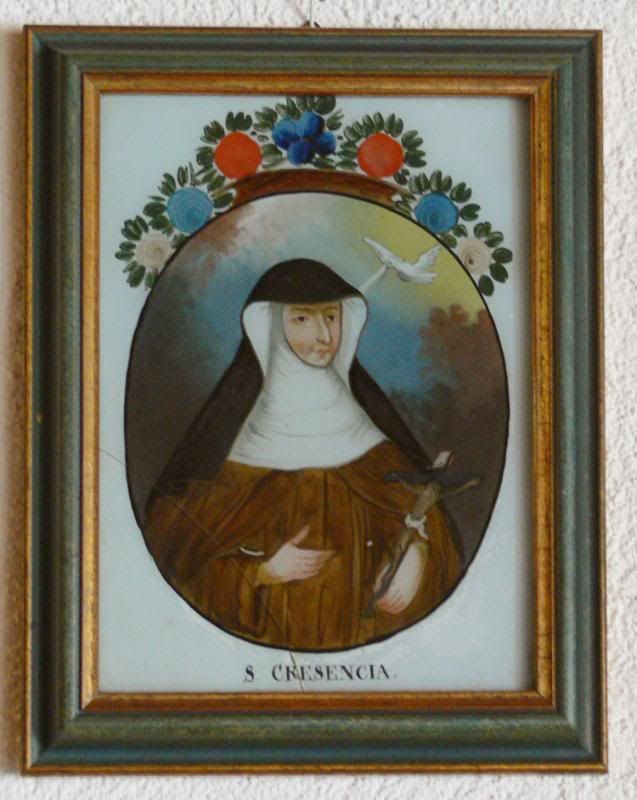 In her years as superior of the community, the convent underwent a renewal. No one with a heart for the Lord was turned away, regardless of the size of their dowry. Crescentia justified her selectivity regarding vocations saying, "God wants the convent rich in virtue, not in temporal goods.” She emphasized to her sisters unlimited trust in divine providence, readiness in the acts of the common life, love of silence, devotion to Jesus crucified, and devotion to the Eucharist and the Blessed Mother.
In her years as superior of the community, the convent underwent a renewal. No one with a heart for the Lord was turned away, regardless of the size of their dowry. Crescentia justified her selectivity regarding vocations saying, "God wants the convent rich in virtue, not in temporal goods.” She emphasized to her sisters unlimited trust in divine providence, readiness in the acts of the common life, love of silence, devotion to Jesus crucified, and devotion to the Eucharist and the Blessed Mother.
 Saint Crescentia had many reasons and opportunities to turn from the Lord, based upon the way others treated her. And yet, throughout her trials, humiliation, and suffering, her faith in God only deepened and grew. It was this faith that led her to transform her community, re-centering her sisters in the love of Christ, and the acceptance of all. She taught her charges, and in doing so teaches us, to never criticize others unkindly. Moreover, through her life, she reminds us that God is pleased by our gracious suffering, enduring all with patience and hope.
Saint Crescentia had many reasons and opportunities to turn from the Lord, based upon the way others treated her. And yet, throughout her trials, humiliation, and suffering, her faith in God only deepened and grew. It was this faith that led her to transform her community, re-centering her sisters in the love of Christ, and the acceptance of all. She taught her charges, and in doing so teaches us, to never criticize others unkindly. Moreover, through her life, she reminds us that God is pleased by our gracious suffering, enduring all with patience and hope.
Prayer of Love to God (written by Saint Crescentia Hoess)
Grant, O God, that love and suffering may grow hand in hand in me, so that I may love you more and more with the cheerful disposition which is the fruit of love. O Lord, only grant me love for you, and I shall be rich enough. I desire only that you leave me to my nothingness and that you alone, if I may say so, be all in all and loved and honored by everybody. I wish to take pleasure in nothing but only in you and your love.
Year 2: Day 96 of 365
Prayer Intentions: Acceptance and love for all; Patient suffering.
Born in a small town near Augsburg, Bavaria, Crescentia survived a poor childhood with grace and joy. Her father, a weaver, had little money to support the family, and yet Crescentia was renowned in the area for her cheerful disposition, and her willingness to give the little she had to those who needed it more. She spent her days at the local church praying, and received her first Holy Eucharist at the unusually young age of seven due to her knowledge of the catechism and her demonstrated love for the Lord. Residents of the town, Catholic and non-Catholic alike, referred to her as “the little angel.” At this time, around age seven, while praying in the chapel of the Franciscan convent, she heard a voice which said, “this shall be your dwelling place.”
When Crescentia reached 18, she professed her desire to join the Third Order of Saint Francis, which her father approved of. He approached the convent, but her admission was refused as she didn’t have a sufficient dowry to accompany her. Crescentia bore this rejection with grace and humility, as she bore all other difficulties. It wasn’t until the Protestant mayor of the town, who shared the same affection for Crescentia as all the town’s residents, intervened that she was accepted into the Order.
However, life was not easy for Crescentia once she took the veil. Rather, her sisters, under the direction of the Superior, treated her poorly, referring to her as “beggar,” and expecting her to perform the most menial tasks. She was not provided with her own cell, forced to beg her sisters to sleep in a corner each night. All of these things, as prior to her monastic life, she suffered with piety and grace—so much so, that her sisters would accuse her of hypocrisy. But Crescentia’s faith would not be dampened, nor would her sprits. She performed the menial tasks given to her better than anyone else could have, praying constantly while she did, and thanking the Lord for the opportunity. Following reception of the Holy Eucharist, she began experiencing visions of the Lord, which at first concerned her, and later brought her comfort.
After some years, a new Superior was appointed to direct the convent, and with her, change came upon the place. The new Superior recognized the piety and obedience of Sister Crescentia, and through her leadership, so did the community. She was appointed Mistress of Novices, and then years later, Superior of the convent. Both positions she reluctantly accepted with humility and grace. Under her direction, the rules were strictly enforced, but with compassion and joy. Warmth and humor guided her daily interactions with her sisters.
Word of Crescentia’s piety and grace spread, as did her humility. Local nobles, heads of state, and learned scholars consulted with Crescentia for spiritual direction. She became known for practical solutions to problems and a common-sense approach. Her advice to her visitors always stressed the need for prayer but also encouraged the petitioner to do everything possible to resolve the issue.
Crescentia and her community demonstrated great kindness to the poor and those in need. She welcomed all as brothers and sisters of Christ, and treated them with respect, dignity, and charity. To her sisters she recommended observing silence, recollection, and spiritual reading, especially the Gospels. The teacher of their religious life had to be Jesus on the Cross.
 In her years as superior of the community, the convent underwent a renewal. No one with a heart for the Lord was turned away, regardless of the size of their dowry. Crescentia justified her selectivity regarding vocations saying, "God wants the convent rich in virtue, not in temporal goods.” She emphasized to her sisters unlimited trust in divine providence, readiness in the acts of the common life, love of silence, devotion to Jesus crucified, and devotion to the Eucharist and the Blessed Mother.
In her years as superior of the community, the convent underwent a renewal. No one with a heart for the Lord was turned away, regardless of the size of their dowry. Crescentia justified her selectivity regarding vocations saying, "God wants the convent rich in virtue, not in temporal goods.” She emphasized to her sisters unlimited trust in divine providence, readiness in the acts of the common life, love of silence, devotion to Jesus crucified, and devotion to the Eucharist and the Blessed Mother. As she aged, Crescentia was beset with many physical ailments, which she endured with patient and joyful suffering. Eventually, her hands and feet became so crippled, she was unable to straighten her body and was confined to her bed, in the fetal position. Like Saint Francis, she cried out to the Lord, grateful for the gift of her limbs so that she might suffer. She died at peace on Easter Sunday, surrounded by her sisters.
 Saint Crescentia had many reasons and opportunities to turn from the Lord, based upon the way others treated her. And yet, throughout her trials, humiliation, and suffering, her faith in God only deepened and grew. It was this faith that led her to transform her community, re-centering her sisters in the love of Christ, and the acceptance of all. She taught her charges, and in doing so teaches us, to never criticize others unkindly. Moreover, through her life, she reminds us that God is pleased by our gracious suffering, enduring all with patience and hope.
Saint Crescentia had many reasons and opportunities to turn from the Lord, based upon the way others treated her. And yet, throughout her trials, humiliation, and suffering, her faith in God only deepened and grew. It was this faith that led her to transform her community, re-centering her sisters in the love of Christ, and the acceptance of all. She taught her charges, and in doing so teaches us, to never criticize others unkindly. Moreover, through her life, she reminds us that God is pleased by our gracious suffering, enduring all with patience and hope.Prayer of Love to God (written by Saint Crescentia Hoess)
Grant, O God, that love and suffering may grow hand in hand in me, so that I may love you more and more with the cheerful disposition which is the fruit of love. O Lord, only grant me love for you, and I shall be rich enough. I desire only that you leave me to my nothingness and that you alone, if I may say so, be all in all and loved and honored by everybody. I wish to take pleasure in nothing but only in you and your love.
Year 2: Day 96 of 365
Prayer Intentions: Acceptance and love for all; Patient suffering.
Requested Intentions: Healing of a daughter with congenital heart disease (F); Healing and an end to suffering (J); For the children (M); For a son fighting a rare immune system disease (R); Freedom from imprisonment (J); Employment and end to depression (H); Successful employment (A); Health for a soon to be delivered baby (T); Financial security (L); Healing of tooth pain (A); Health of expectant mother and child (R); Purification of the souls in Purgatory (A); Guidance in studies (J); Healing and security for a displaced family (C); Healing of high blood pressure; Recovery of brother following surgery (A); For a sister in trouble, that she may make better decisions in the light of Christ (M); Health of expectant mother and child (R); Attainment of funds for surgery (J); Freedom from financial difficulties (E); For employment and college acceptance (E); Recovery and healing of a friend (C); For successful outcome to surgery (C); Healing for brother (M); Successful employment (C); For the victims of the Japanese tsunami/earthquake (J); Healing (E); For a son struggling with depression (B); Successful conception (M); Freedom from social anxiety; confidence in the Lord (J); Improved success in employment and studies (D); Freedom from illness (T); For a wife’s employment (E); Healing of a husband’s knee (M); Freedom from sickness (R); Healing (C); Restoration of marriage (F); Freedom from medical difficulties, employment, successful relationship (D); Healing of a father following stroke (S).
Today, March 29, we remember Saint Armogastes (born, unknown; died circa 460) and Companions on his feast day. Together with Saints Saturus and Archinimus, Saint Armogastes was subjected to a life of torture, hard labor, and exile for his faith.
Armogastes and his companions were high officers and personal servants to Theodoric, son of the Vandal king Genseric. They lived and worked in the royal court, but were also Orthodox Catholics. King Genseric, too, had once followed the faith, but as time went by, became more and more attracted to Arianism, the heretical doctrine that Jesus Christ was not divine. Upon acceptance of this doctrine, he ordered his family and court to renounce their faith and embrace Arianism. In the process, he waged war on Christian lands, conquering Spain, North Africa, and Italy, and eventually invading and looting Rome itself.
Theodoric, ever the faithful son, submitted to his father’s request, but his servants refused. Led by Armogastes, they professed their belief and faith in Christ, and for that, were tortured in efforts to recant. Saturus’ wife begged him to acquiesce, but he responded using the words of Job: "You have spoken like one of the foolish women. If you loved me, you would give me different advice, and not push me on to a second death. Let them do their worst: I will always remember our Lord's words: 'If any man born to me, and hate not his father and mother, his wife and children, his brethren and sisters, and his own life also, he cannot be my disciple.'"
Armogastes was bound to an upside-down cross repeatedly, but miraculously, each time the binding broke, freeing him. He was then hoisted aloft by one foot, and left to hang, but again, was saved. Along with his companions, the kind ordered him beheaded with an axe, but was advised by his Arian priests that killing the servants might lead to their veneration as holy martyrs. Instead, Armogastes, Saturus, and Archinimus were sentenced to hard labor at the mines of Byzacena. They persisted in this back-breaking work for years, never losing faith, until they were spared. Armogastes and Saturus were sent to herd cattle in Carthage, where they finished their days. Archinimus was liberated, but spent the remainder of his days begging, having lost everything.
Armogastes, Saturus, and Archinimus lived at a time of great strife within the Church. Their employer and king had renounced the divinity of Christ, along with almost 50% of priests at the time. And yet, these three men remained faithful and confident in their Lord, their fidelity rewarded only with suffering and punishment. Throughout all, however, even in the exhaustion and darkness of the mines of Byzacena, they never lost hope. Their faith and confidence inspires us today to stand firm in our own beliefs, to not compromise our faith for acceptance by others, and to witness to the world the saving power of Jesus Christ!
A Prayer For Steadfastness
Jesus, help us to hear Your words and obey them. When the rains fall, the floods rise, and the winds blow we may be shaken but we will not crash, for our hope is in the One who walks on water and calms the tempest seas. Jesus, You are the Solid Rock upon which we stand when all other ground is sinking sand. Amen.
Year 2: Day 88 of 365
Prayer Intentions: Steadfast courage in the Lord.
Armogastes and his companions were high officers and personal servants to Theodoric, son of the Vandal king Genseric. They lived and worked in the royal court, but were also Orthodox Catholics. King Genseric, too, had once followed the faith, but as time went by, became more and more attracted to Arianism, the heretical doctrine that Jesus Christ was not divine. Upon acceptance of this doctrine, he ordered his family and court to renounce their faith and embrace Arianism. In the process, he waged war on Christian lands, conquering Spain, North Africa, and Italy, and eventually invading and looting Rome itself.
Theodoric, ever the faithful son, submitted to his father’s request, but his servants refused. Led by Armogastes, they professed their belief and faith in Christ, and for that, were tortured in efforts to recant. Saturus’ wife begged him to acquiesce, but he responded using the words of Job: "You have spoken like one of the foolish women. If you loved me, you would give me different advice, and not push me on to a second death. Let them do their worst: I will always remember our Lord's words: 'If any man born to me, and hate not his father and mother, his wife and children, his brethren and sisters, and his own life also, he cannot be my disciple.'"
Armogastes was bound to an upside-down cross repeatedly, but miraculously, each time the binding broke, freeing him. He was then hoisted aloft by one foot, and left to hang, but again, was saved. Along with his companions, the kind ordered him beheaded with an axe, but was advised by his Arian priests that killing the servants might lead to their veneration as holy martyrs. Instead, Armogastes, Saturus, and Archinimus were sentenced to hard labor at the mines of Byzacena. They persisted in this back-breaking work for years, never losing faith, until they were spared. Armogastes and Saturus were sent to herd cattle in Carthage, where they finished their days. Archinimus was liberated, but spent the remainder of his days begging, having lost everything.
Armogastes, Saturus, and Archinimus lived at a time of great strife within the Church. Their employer and king had renounced the divinity of Christ, along with almost 50% of priests at the time. And yet, these three men remained faithful and confident in their Lord, their fidelity rewarded only with suffering and punishment. Throughout all, however, even in the exhaustion and darkness of the mines of Byzacena, they never lost hope. Their faith and confidence inspires us today to stand firm in our own beliefs, to not compromise our faith for acceptance by others, and to witness to the world the saving power of Jesus Christ!
A Prayer For Steadfastness
Jesus, help us to hear Your words and obey them. When the rains fall, the floods rise, and the winds blow we may be shaken but we will not crash, for our hope is in the One who walks on water and calms the tempest seas. Jesus, You are the Solid Rock upon which we stand when all other ground is sinking sand. Amen.
Year 2: Day 88 of 365
Prayer Intentions: Steadfast courage in the Lord.
Requested Intentions: Freedom from imprisonment (J); Employment and end to depression (H); Successful employment (A); Health for a soon to be delivered baby (T); Financial security (L); Healing of tooth pain (A); Health of expectant mother and child (R); Purification of the souls in Purgatory (A); Guidance in studies (J); Healing and security for a displaced family (C); Healing of high blood pressure; Recovery of brother following surgery (A); For a sister in trouble, that she may make better decisions in the light of Christ (M); Health of expectant mother and child (R); Attainment of funds for surgery (J); Freedom from financial difficulties (E); For employment and college acceptance (E); Recovery and healing of a friend (C); For successful outcome to surgery (C); Healing for brother (M); Successful employment (C); For the victims of the Japanese tsunami/earthquake (J); Healing (E); For a son struggling with depression (B); Successful conception (M); Freedom from social anxiety; confidence in the Lord (J); Improved success in employment and studies (D); Freedom from illness (T); For a wife’s employment (E); Healing of a husband’s knee (M); Freedom from sickness (R); Healing (C); Restoration of marriage (F); Freedom from medical difficulties, employment, successful relationship (D); Healing of a father following stroke (S).
March 17 is one of the most widely recognized feast days throughout the Church, the feast of Saint Patrick (387-493), patron saint of Ireland. Many myths and legends have arisen regarding the life of Saint Patrick, some culturally-based in Celtic oral storytelling, and some much more modern in support of non-spiritual celebrations. Church historians have compiled the basic facts of Saint Patrick’s life from letters and Confessions that he wrote while alive, as well as survey of the political and historical landscapes of the time. Many of the legendary miracles reported to have been performed by Saint Patrick remain unverified by history, but for many verified by faith in the gentle man responsible for bringing Catholicism to Ireland.
Saint Patrick was born in Kilpatrick, Scotland, where he lived the first 14 years of his life with his family, Christians, although not overly devout. In late adolescence, Patrick was captured from his family’s home by Irish raiders, and taken back to Ireland as a slave. There, he would spend the next six years in captivity, learning Celtic customs and language, and spending significant periods of time alone, tending sheep in the fields. It was here that Patrick’s’ love of God deepened and his faith took root and bloomed. He prayed incessantly, writing, “the love of God, and His fear increased in me more and more, and the faith grew in me, and the spirit was roused, so that, in a single day, I have said as many as a hundred prayers, and in the night nearly the same, so that whilst in the woods and on the mountain, even before the dawn, I was roused to prayer and felt no hurt from it, whether there was snow or ice or rain; nor was there any slothfulness in me, such as I see now, because the spirit was then fervent within me.”
After six years of contemplation, Patrick was visited by an angel who encouraged him to return home to Scotland by escaping his slavery and walking 200 miles to the coast where he would find a ship awaiting him. Patrick did as instructed, finding the crew of s ship willing to take him to Scotland, and returned home to his grateful family. After a few years, Patrick experienced a second call from God, this time in the form of a visitor from Ireland. In his Confessions, he wrote:
I saw a man coming, as it were from Ireland. His name was Victoricus, and he carried many letters, and he gave me one of them. I read the heading: "The Voice of the Irish". As I began the letter, I imagined in that moment that I heard the voice of those very people who were near the wood of Foclut, which is beside the western sea—and they cried out, as with one voice: "We appeal to you, holy servant boy, to come and walk among us!
Patrick felt called to return to Ireland, but wished to be ordained prior to his departure. He undertook rigorous religious study, lasting approximately 14 years, during which time he was first ordained a priest, and later a bishop. Only upon becoming bishop did Patrick feel prepared to return to Ireland. While some legend suggests that Saint Patrick introduced Christianity to Ireland, it is far more likely that some small Christian communities existed before his second arrival. His dual mission was that of ministering to the existing Christian communities and converting others to the faith.
Saint Patrick had great success on both accounts, drawing from his familiarity of Celtic and Druid religious beliefs and language. He introduced natural elements into his teaching, including placing the sun on the Celtic Cross as symbolization of the Godhead, illustrating the Resurrection of Christ through the use of bonfires (symbols familiar to the Druids), and most famously, explaining the Holy Trinity through comparison to the shamrock.
Many were converted by his works, and monasteries and convents established (although their formal structure and organization would not be complete until centuries after his death). During his ministry in Ireland, Saint Patrick lived a poor and austere life, accepting only what he needed to live. He was repeatedly arrested and imprisoned, threatened and attacked by chieftains of warring tribes, and suffered great peril. Throughout all struggles, he remained fearless, looking to the Lord for guidance and comfort, and demonstrating great love, humility, and charity towards all he encountered. Numerous miracles and intercessions are reported in his name.
Saint Patrick’s ministry in Ireland spanned over 40 years, during which he laid the foundation for the seat of the Church during the Dark Ages, when Christianity survived in Irish monasteries. He died in Saul, Ireland, where he is believed to be buried. He is reported to have composed the following prayer, referred to as “Saint Patrick’s Breastplate:”
I bind to myself today
The strong virtue of the Invocation of the Trinity:
I believe the Trinity in the Unity
The Creator of the Universe.
I bind to myself today
The virtue of the Incarnation of Christ with His Baptism,
The virtue of His crucifixion with His burial,
The virtue of His Resurrection with His Ascension,
The virtue of His coming on the Judgment Day.
I bind to myself today
The virtue of the love of seraphim,
In the obedience of angels,
In the hope of resurrection unto reward,
In prayers of Patriarchs,
In predictions of Prophets,
In preaching of Apostles,
In faith of Confessors,
In purity of holy Virgins,
In deeds of righteous men.
I bind to myself today
The power of Heaven,
The light of the sun,
The brightness of the moon,
The splendor of fire,
The flashing of lightning,
The swiftness of wind,
The depth of sea,
The stability of earth,
The compactness of rocks.
I bind to myself today
God's Power to guide me,
God's Might to uphold me,
God's Wisdom to teach me,
God's Eye to watch over me,
God's Ear to hear me,
God's Word to give me speech,
God's Hand to guide me,
God's Way to lie before me,
God's Shield to shelter me,
God's Host to secure me,
Against the snares of demons,
Against the seductions of vices,
Against the lusts of nature,
Against everyone who meditates injury to me,
Whether far or near,
Whether few or with many.
I invoke today all these virtues
Against every hostile merciless power
Which may assail my body and my soul,
Against the incantations of false prophets,
Against the black laws of heathenism,
Against the false laws of heresy,
Against the deceits of idolatry,
Against the spells of women, and smiths, and druids,
Against every knowledge that binds the soul of man.
Christ, protect me today
Against every poison, against burning,
Against drowning, against death-wound,
That I may receive abundant reward.
Christ with me, Christ before me,
Christ behind me, Christ within me,
Christ beneath me, Christ above me,
Christ at my right, Christ at my left,
Christ in the fort,
Christ in the chariot seat,
Christ in the deck of ships,
Christ in the heart of everyone who thinks of me,
Christ in the mouth of everyone who speaks to me,
Christ in every eye that sees me,
Christ in every ear that hears me.
I bind to myself today
The strong virtue of an invocation of the Trinity:
I believe the Trinity in the Unity
The Creator of the Universe.
Saint Patrick was born in Kilpatrick, Scotland, where he lived the first 14 years of his life with his family, Christians, although not overly devout. In late adolescence, Patrick was captured from his family’s home by Irish raiders, and taken back to Ireland as a slave. There, he would spend the next six years in captivity, learning Celtic customs and language, and spending significant periods of time alone, tending sheep in the fields. It was here that Patrick’s’ love of God deepened and his faith took root and bloomed. He prayed incessantly, writing, “the love of God, and His fear increased in me more and more, and the faith grew in me, and the spirit was roused, so that, in a single day, I have said as many as a hundred prayers, and in the night nearly the same, so that whilst in the woods and on the mountain, even before the dawn, I was roused to prayer and felt no hurt from it, whether there was snow or ice or rain; nor was there any slothfulness in me, such as I see now, because the spirit was then fervent within me.”
After six years of contemplation, Patrick was visited by an angel who encouraged him to return home to Scotland by escaping his slavery and walking 200 miles to the coast where he would find a ship awaiting him. Patrick did as instructed, finding the crew of s ship willing to take him to Scotland, and returned home to his grateful family. After a few years, Patrick experienced a second call from God, this time in the form of a visitor from Ireland. In his Confessions, he wrote:
I saw a man coming, as it were from Ireland. His name was Victoricus, and he carried many letters, and he gave me one of them. I read the heading: "The Voice of the Irish". As I began the letter, I imagined in that moment that I heard the voice of those very people who were near the wood of Foclut, which is beside the western sea—and they cried out, as with one voice: "We appeal to you, holy servant boy, to come and walk among us!
Patrick felt called to return to Ireland, but wished to be ordained prior to his departure. He undertook rigorous religious study, lasting approximately 14 years, during which time he was first ordained a priest, and later a bishop. Only upon becoming bishop did Patrick feel prepared to return to Ireland. While some legend suggests that Saint Patrick introduced Christianity to Ireland, it is far more likely that some small Christian communities existed before his second arrival. His dual mission was that of ministering to the existing Christian communities and converting others to the faith.
Saint Patrick had great success on both accounts, drawing from his familiarity of Celtic and Druid religious beliefs and language. He introduced natural elements into his teaching, including placing the sun on the Celtic Cross as symbolization of the Godhead, illustrating the Resurrection of Christ through the use of bonfires (symbols familiar to the Druids), and most famously, explaining the Holy Trinity through comparison to the shamrock.
Many were converted by his works, and monasteries and convents established (although their formal structure and organization would not be complete until centuries after his death). During his ministry in Ireland, Saint Patrick lived a poor and austere life, accepting only what he needed to live. He was repeatedly arrested and imprisoned, threatened and attacked by chieftains of warring tribes, and suffered great peril. Throughout all struggles, he remained fearless, looking to the Lord for guidance and comfort, and demonstrating great love, humility, and charity towards all he encountered. Numerous miracles and intercessions are reported in his name.
Saint Patrick’s ministry in Ireland spanned over 40 years, during which he laid the foundation for the seat of the Church during the Dark Ages, when Christianity survived in Irish monasteries. He died in Saul, Ireland, where he is believed to be buried. He is reported to have composed the following prayer, referred to as “Saint Patrick’s Breastplate:”
I bind to myself today
The strong virtue of the Invocation of the Trinity:
I believe the Trinity in the Unity
The Creator of the Universe.
I bind to myself today
The virtue of the Incarnation of Christ with His Baptism,
The virtue of His crucifixion with His burial,
The virtue of His Resurrection with His Ascension,
The virtue of His coming on the Judgment Day.
I bind to myself today
The virtue of the love of seraphim,
In the obedience of angels,
In the hope of resurrection unto reward,
In prayers of Patriarchs,
In predictions of Prophets,
In preaching of Apostles,
In faith of Confessors,
In purity of holy Virgins,
In deeds of righteous men.
I bind to myself today
The power of Heaven,
The light of the sun,
The brightness of the moon,
The splendor of fire,
The flashing of lightning,
The swiftness of wind,
The depth of sea,
The stability of earth,
The compactness of rocks.
I bind to myself today
God's Power to guide me,
God's Might to uphold me,
God's Wisdom to teach me,
God's Eye to watch over me,
God's Ear to hear me,
God's Word to give me speech,
God's Hand to guide me,
God's Way to lie before me,
God's Shield to shelter me,
God's Host to secure me,
Against the snares of demons,
Against the seductions of vices,
Against the lusts of nature,
Against everyone who meditates injury to me,
Whether far or near,
Whether few or with many.
I invoke today all these virtues
Against every hostile merciless power
Which may assail my body and my soul,
Against the incantations of false prophets,
Against the black laws of heathenism,
Against the false laws of heresy,
Against the deceits of idolatry,
Against the spells of women, and smiths, and druids,
Against every knowledge that binds the soul of man.
Christ, protect me today
Against every poison, against burning,
Against drowning, against death-wound,
That I may receive abundant reward.
Christ with me, Christ before me,
Christ behind me, Christ within me,
Christ beneath me, Christ above me,
Christ at my right, Christ at my left,
Christ in the fort,
Christ in the chariot seat,
Christ in the deck of ships,
Christ in the heart of everyone who thinks of me,
Christ in the mouth of everyone who speaks to me,
Christ in every eye that sees me,
Christ in every ear that hears me.
I bind to myself today
The strong virtue of an invocation of the Trinity:
I believe the Trinity in the Unity
The Creator of the Universe.
“I will attempt day by day to break my will into pieces. I want to do God’s Holy Will, not my own!”
Today, February 27, we celebrate the feast of Saint Gabriel Possenti of Our Lady of Sorrows, one of the three patron saints I selected for this blog. I was moved by the life and works of Saint Gabriel last year, as I wrote and learned about his extraordinary faith and love for the Lord and Our Blessed Mother. The simple devotion, obedience, and all-consuming love that marked the short life of Saint Gabriel is an extraordinary example for each of us. I encourage you to read my short blog about his life and works, available here.
Saint Gabriel prayed before the cross every day. He humbly prayed for grace from Our Lord, finding his solace and comfort in the wounds of Christ.
“Behold me at Thy feet, O my Lord, begging Thy pity and mercy. What wilt Thou lose by granting me a deep love for Thee, a profound humility, a great purity of heart, of mind and of body, a fraternal charity, a sincere sorrow for having offended Thee, and the grace to offend Thee no more? What wilt Thou lose, O my God, by enabling me to receive worthily Thy Beloved Son in Holy Communion, by assisting me to act through love for Thee in all my thoughts, works, penances and prayers; by bestowing upon me the favor of loving Thy holy mother most tenderly and trustfully; the grace of final perseverance in my vocation, and of dying a good and holy death? I am a beggar covered with wounds and rags, asking for alms. Behold, O Lord, all my wretchedness! See my proud intellect, my cold and stony heart! See my mind filled with worldly thoughts, my will disposed to evil, and my body rebellious to every good work! Help me, O my God, to correct myself. This grace I implore through Thine own infinite goodness and mercy. To obtain it I offer Thee the merits of Thy Son, Jesus Christ, our Master and Redeemer. I have no merits of my own. I am destitute of all good, but His wounds are my hope: vulnera tua, merita mea. Had I shed my blood, for love of Thee, like Thy Son, wouldst Thou not grant me this favor? How much more oughtest Thou to hear me now, since He shed His blood for me. Art not Thou He who has promised in Thy gospel that whatsoever I ask for the good of my soul, Thou wilt grant me: ‘Ask and you shall receive.’ Now, as Thou canst not recall Thy word, I beseech Thee to hear me: I supplicate Thee through Thine infinite goodness, through the heart of Thy Son wounded with love for me through the infinite charity of the Holy Ghost, through the love Thou bearest toward Thy most holy daughter, Mary, and for the honour of the whole heavenly court, into which I ask Thee, one day, in Thy mercy to admit me. Amen.”
Saint Gabriel was further devoted to Our Blessed Mother, taking her name, and modeling his life after her own. At the time of his death, Saint Gabriel prayed to Our Blessed Mother, for her intercession and comfort, recognizing his suffering in that of hers beneath the cross.
“O Mother of Sorrows, by the anguish and love with which thou didst stand at the cross of Jesus, stand by me in my last agony. To thy maternal heart I commend the last three hours of my life. Offer these hours to the Eternal Father in union with the agony of our dearest Lord, in atonement for my sins. Offer to the Eternal Father the most precious blood of Jesus, mingled with your tears on Calvary, that I may obtain the grace of receiving Holy Communion with the most perfect love and contrition before my death, and that I may breathe forth my soul in the adorable presence of Jesus. Dearest Mother, when the moment of my death has at last come, present me as your child to Jesus. Ask Him to forgive me for having offended Him, for I knew not what I did. Beg Him to receive me into His kingdom of glory to be united with Him forever. Amen.”
I have previously posted excerpts from Saint Gabriel’s Marian Creed, which can be read here. For the full text of the translated Marian Creed of Saint Gabriel, see here.
“I will attempt day by day to break my will into pieces. I want to do God’s Holy Will, not my own”
“My life inside here [the Passionist house] is bursting with joy!”
“Love Mary!… She is loveable, faithful, constant. She will never let herself be outdone in love, but will ever remain supreme. If you are in danger, she will hasten to free you. If you are troubled, she will console you. If you are sick, she will bring you relief. If you are in need, she will help you. She does not look to see what kind of person you have been. She simply comes to a heart that wants to love her. She comes quickly and opens her merciful heart to you, embraces you and consoles and serves you. She will even be at hand to accompany you on the trip to eternity.”
“With sin, O Jesus, I gave you the death, but I do not despair of your forgiveness. Those scourges call me, those arms extended invite me, that injured Heart offers me a secure shelter.”
“Who it will be able ever to repeat the pains, the strains and the sufferings that Jesus suffered in such little time. We see Jesus in the garden of the olives, after being separated from His Sorrowful mother, how he is pale and trembling with fear, his face to the ground!”
“Mary, dear Mother of mine, come fast!”
“You [O Mary] answered with the “fiat” to the announcement of the angel, do not want our ruin; show love and pity.”
“My life is a continuous delight; what I experience inside these sacred walls is almost inexpressible; the 24 hours of the day seem to me like 24 short instants; really my life is full of delight.”
“Our perfection does not consist of doing extraordinary things but to do the ordinary well.”
“My sole merit lies in Your wounds.”
“Father, tell me if in my heart there is something that does not please God, because it I want to rip it out.”
“. . . fidelity in little things must be the basic rule in striving for holiness,”
“Do not bestow your love on the world.”
Saint Gabriel modeled his life on that of Christ and Our Blessed Mother, committing himself to embody every virtue and shun every sin. To that end, he committed to writing a list of 41 Resolutions, guiding his daily life, which can be read here.
O angelic young Gabriel, who, with your ardent love for Jesus Crucified and your compassion for Our Lady of Sorrows, were on earth a mirror of innocence and an example of every virtue; we turn to you full of confidence to implore your aid. Oh! How many evil things and afflictions O how many dangers, assail our young people from every side, seeking to make them lose the faith. You, who lived always a life of faith, who amongst the temptations of the world maintained purity and virginity; turn your eyes to us, cast us a compassionate and pitying glance! Help us to have the grace to persevere in faith; we invoke your name; we cannot doubt the effactiousness of your patronage! In full confidence of our hope in you, we pray, O Sweet Saint, to obtain this particular grace for the greater glory of God and for the good of souls (here mention your request). Finally, obtain for us from Jesus Christ Crucified, through Mary, Our Lady of Sorrows, resignation and peace so that we might always live the Christian life, throughout all the times of this present life, so that we might one day be happy with you in the presence of our Heavenly Father. Amen
Year 2: Day 58 of 365
Prayer Intentions: Simple faith, obedience, and love.
Requested Intentions: Freedom from medical difficulties, employment, successful relationship (D); End to suffering for sick brother; reconciliation of estranged family (E); End to husband’s addiction; Improved relationship; strength (M); Successful God-centered marriage; Sacramental life (M); Healing, successful relationship (S); For successful marriage (A); For a husband’s freedom from addiction (C); Freedom from pain and illness for a friend (M); Financial freedom (J); Successful passing of occupational examination (S); Healing and conversion, sale of house (L); Occupational success for employee and colleagues (J); Employment for a son (C); Successful attainment of an important appointed position (J); Recovery from cancer for a friend (Z); For a family’s freedom from sin (M); For a daughter with Diabetes (A); Healing of a father following stroke (S).
Today, February 27, we celebrate the feast of Saint Gabriel Possenti of Our Lady of Sorrows, one of the three patron saints I selected for this blog. I was moved by the life and works of Saint Gabriel last year, as I wrote and learned about his extraordinary faith and love for the Lord and Our Blessed Mother. The simple devotion, obedience, and all-consuming love that marked the short life of Saint Gabriel is an extraordinary example for each of us. I encourage you to read my short blog about his life and works, available here.
Saint Gabriel prayed before the cross every day. He humbly prayed for grace from Our Lord, finding his solace and comfort in the wounds of Christ.
“Behold me at Thy feet, O my Lord, begging Thy pity and mercy. What wilt Thou lose by granting me a deep love for Thee, a profound humility, a great purity of heart, of mind and of body, a fraternal charity, a sincere sorrow for having offended Thee, and the grace to offend Thee no more? What wilt Thou lose, O my God, by enabling me to receive worthily Thy Beloved Son in Holy Communion, by assisting me to act through love for Thee in all my thoughts, works, penances and prayers; by bestowing upon me the favor of loving Thy holy mother most tenderly and trustfully; the grace of final perseverance in my vocation, and of dying a good and holy death? I am a beggar covered with wounds and rags, asking for alms. Behold, O Lord, all my wretchedness! See my proud intellect, my cold and stony heart! See my mind filled with worldly thoughts, my will disposed to evil, and my body rebellious to every good work! Help me, O my God, to correct myself. This grace I implore through Thine own infinite goodness and mercy. To obtain it I offer Thee the merits of Thy Son, Jesus Christ, our Master and Redeemer. I have no merits of my own. I am destitute of all good, but His wounds are my hope: vulnera tua, merita mea. Had I shed my blood, for love of Thee, like Thy Son, wouldst Thou not grant me this favor? How much more oughtest Thou to hear me now, since He shed His blood for me. Art not Thou He who has promised in Thy gospel that whatsoever I ask for the good of my soul, Thou wilt grant me: ‘Ask and you shall receive.’ Now, as Thou canst not recall Thy word, I beseech Thee to hear me: I supplicate Thee through Thine infinite goodness, through the heart of Thy Son wounded with love for me through the infinite charity of the Holy Ghost, through the love Thou bearest toward Thy most holy daughter, Mary, and for the honour of the whole heavenly court, into which I ask Thee, one day, in Thy mercy to admit me. Amen.”
Saint Gabriel was further devoted to Our Blessed Mother, taking her name, and modeling his life after her own. At the time of his death, Saint Gabriel prayed to Our Blessed Mother, for her intercession and comfort, recognizing his suffering in that of hers beneath the cross.
“O Mother of Sorrows, by the anguish and love with which thou didst stand at the cross of Jesus, stand by me in my last agony. To thy maternal heart I commend the last three hours of my life. Offer these hours to the Eternal Father in union with the agony of our dearest Lord, in atonement for my sins. Offer to the Eternal Father the most precious blood of Jesus, mingled with your tears on Calvary, that I may obtain the grace of receiving Holy Communion with the most perfect love and contrition before my death, and that I may breathe forth my soul in the adorable presence of Jesus. Dearest Mother, when the moment of my death has at last come, present me as your child to Jesus. Ask Him to forgive me for having offended Him, for I knew not what I did. Beg Him to receive me into His kingdom of glory to be united with Him forever. Amen.”
I have previously posted excerpts from Saint Gabriel’s Marian Creed, which can be read here. For the full text of the translated Marian Creed of Saint Gabriel, see here.
Select Quotations from Saint Gabriel of Our Lady of Sorrows
“I will attempt day by day to break my will into pieces. I want to do God’s Holy Will, not my own”
“My life inside here [the Passionist house] is bursting with joy!”
“Love Mary!… She is loveable, faithful, constant. She will never let herself be outdone in love, but will ever remain supreme. If you are in danger, she will hasten to free you. If you are troubled, she will console you. If you are sick, she will bring you relief. If you are in need, she will help you. She does not look to see what kind of person you have been. She simply comes to a heart that wants to love her. She comes quickly and opens her merciful heart to you, embraces you and consoles and serves you. She will even be at hand to accompany you on the trip to eternity.”
“With sin, O Jesus, I gave you the death, but I do not despair of your forgiveness. Those scourges call me, those arms extended invite me, that injured Heart offers me a secure shelter.”
“Who it will be able ever to repeat the pains, the strains and the sufferings that Jesus suffered in such little time. We see Jesus in the garden of the olives, after being separated from His Sorrowful mother, how he is pale and trembling with fear, his face to the ground!”
“Mary, dear Mother of mine, come fast!”
“You [O Mary] answered with the “fiat” to the announcement of the angel, do not want our ruin; show love and pity.”
“My life is a continuous delight; what I experience inside these sacred walls is almost inexpressible; the 24 hours of the day seem to me like 24 short instants; really my life is full of delight.”
“Our perfection does not consist of doing extraordinary things but to do the ordinary well.”
“My sole merit lies in Your wounds.”
“Father, tell me if in my heart there is something that does not please God, because it I want to rip it out.”
“. . . fidelity in little things must be the basic rule in striving for holiness,”
“Do not bestow your love on the world.”
Saint Gabriel modeled his life on that of Christ and Our Blessed Mother, committing himself to embody every virtue and shun every sin. To that end, he committed to writing a list of 41 Resolutions, guiding his daily life, which can be read here.
O angelic young Gabriel, who, with your ardent love for Jesus Crucified and your compassion for Our Lady of Sorrows, were on earth a mirror of innocence and an example of every virtue; we turn to you full of confidence to implore your aid. Oh! How many evil things and afflictions O how many dangers, assail our young people from every side, seeking to make them lose the faith. You, who lived always a life of faith, who amongst the temptations of the world maintained purity and virginity; turn your eyes to us, cast us a compassionate and pitying glance! Help us to have the grace to persevere in faith; we invoke your name; we cannot doubt the effactiousness of your patronage! In full confidence of our hope in you, we pray, O Sweet Saint, to obtain this particular grace for the greater glory of God and for the good of souls (here mention your request). Finally, obtain for us from Jesus Christ Crucified, through Mary, Our Lady of Sorrows, resignation and peace so that we might always live the Christian life, throughout all the times of this present life, so that we might one day be happy with you in the presence of our Heavenly Father. Amen
Year 2: Day 58 of 365
Prayer Intentions: Simple faith, obedience, and love.
Requested Intentions: Freedom from medical difficulties, employment, successful relationship (D); End to suffering for sick brother; reconciliation of estranged family (E); End to husband’s addiction; Improved relationship; strength (M); Successful God-centered marriage; Sacramental life (M); Healing, successful relationship (S); For successful marriage (A); For a husband’s freedom from addiction (C); Freedom from pain and illness for a friend (M); Financial freedom (J); Successful passing of occupational examination (S); Healing and conversion, sale of house (L); Occupational success for employee and colleagues (J); Employment for a son (C); Successful attainment of an important appointed position (J); Recovery from cancer for a friend (Z); For a family’s freedom from sin (M); For a daughter with Diabetes (A); Healing of a father following stroke (S).
comments (0)
|
Labels:
Feast Day,
Humility,
Love,
Marian Devotion,
Our Lady of Sorrows,
Patron Saint,
Saints,
Suffering
Subscribe to:
Posts (Atom)


























